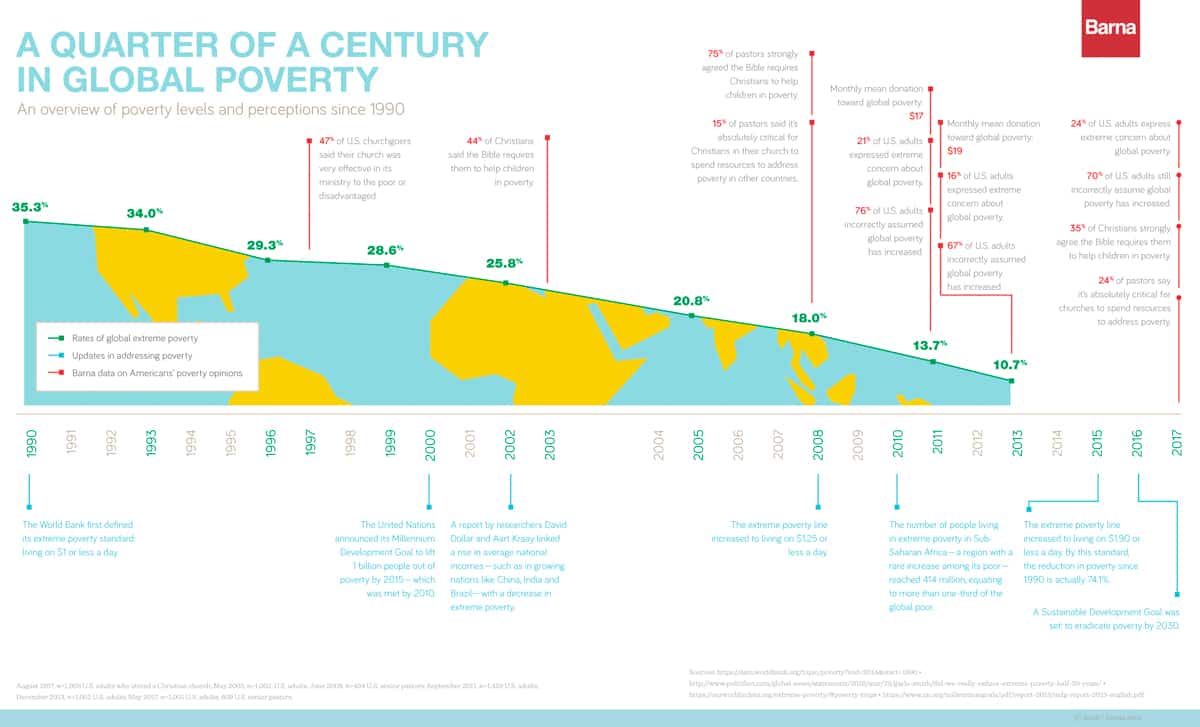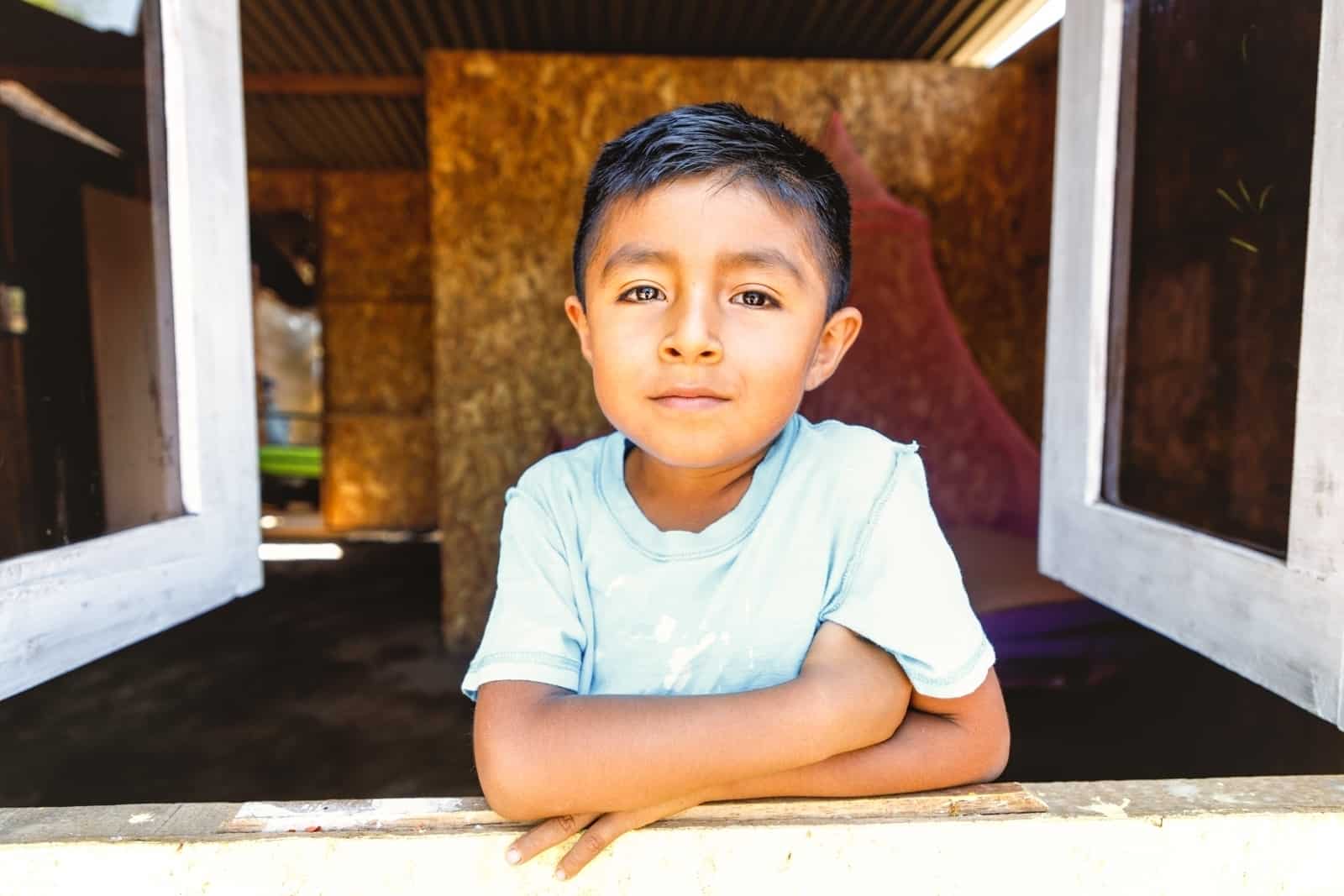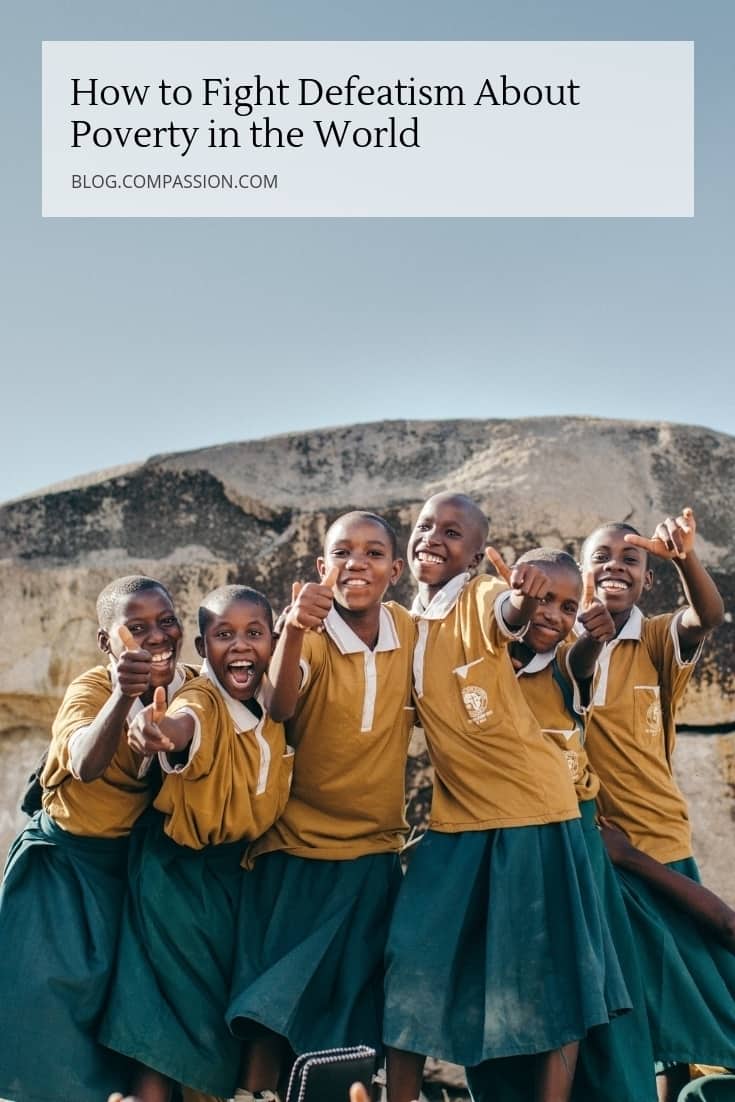Twenty years ago, I was in college — a time when a young adult solidifies a worldview and an understanding of how they fit into the world.
At that time, nearly one out of every third person in the world lived in extreme poverty. Twenty-nine percent of people lived on less than $1.25 a day — not enough to provide even the most basic necessities, like education and health care, for their children. Because of this reality, I developed a deep desire to be part of bringing change to that devastating statistic.
But you know what? A lot can happen in 20 years. And, as it turns out, the world can change a lot faster than a worldview.
Today, only 9 percent of people live in extreme poverty, now defined as living on less than $1.90 a day.
Wow! From 29 percent to 9 percent. What amazing progress to praise and thank God for! In fact, the number of people living in extreme poverty has been nearly cut in half since I was in college, which doesn’t seem like that long ago from my perspective!
Yet, so many of us are still operating on an outdated understanding of the world.

Drastically Wrong About the World
Hans Rosling, in his book Factfulness, details how he has quizzed thousands of people around the world from all backgrounds on basic facts about the state of the world, including things like average life expectancy, how many girls can access education, how many babies are vaccinated from life-threatening diseases, and how many people live in extreme poverty.
What he has found over and over again is that everyone is drastically wrong about the world.
According to Rosling,
“Every group of people I ask thinks the world is more frightening, more violent and more hopeless — in short, more dramatic — than it really is.”
When answering the question regarding whether in the last 20 years, the proportion of the world population living in extreme poverty has doubled, stayed the same or almost halved, only 5 percent of people answer correctly.

[Check out The Good News About Global Poverty study by Barna and Compassion to learn more! View a larger version of this graph.]
The Distortion of “Us and Them”
So, what is one of the biggest reasons we are so wrong about the world? According to Rosling, it has to do with our faulty conception of rich and poor:
“By dividing the world into two misleading boxes — poor and rich — it completely distorts all the global proportions in people’s minds.”
Many of us are still operating on worldviews about global poverty that might have been true in 1950 or even in 1980, but that are simply no longer representative of the state of the world. We can often conceive as “us” in North America and Europe as the rich, and most others in Latin America, Asia and Africa as “the huddled poor.”
But the majority of people have moved out of the extreme poverty that most of humankind has lived and died in throughout our history — now 75 percent of people live in middle-income countries!
“The idea of a divided world with a majority stuck in misery and deprivation is an illusion,” says Rosling. “A complete misconception.”
That is reason to celebrate. That means there are countless mothers and fathers who are not burying the child they prayed and hoped for before the child even turns 5. That means that millions of girls have equal access to education. That means half the number of people die as a result of natural disasters.

Tides Are Changing — Rejoice and Take Heart!
If we don’t stop and celebrate the astounding progress that has occurred, if we believe the lie that everything is just getting worse all the time, we will lose hope. What’s worse, we will lose hope because of a frighteningly misinformed conception of the world.
But, as a sound look at the statistics from around the world will show us, poverty is not inevitable. Change is possible. We are not fighting ceaselessly against an immutable tide. Change is already happening, and we can continue to be a small part of that process.
However, though only 9 percent of people now live in extreme poverty, that still represents hundreds of millions of people. An estimated 385 million children live in extreme poverty. And although that number has dropped by 15 million just since the last time I heard it, that’s still an unacceptable number of children who don’t have the safety, health and opportunity they deserve.
So, in light of what we hold in our hands — both the hope of what has been accomplished and the urgency of what is still to do — I propose this:
1. Praise God.

We stop giving into feelings of defeatism and fatalism when we look at this world. The data are on the side of humanity.
Praise God that millions of babies who 25 years ago would have died from diarrhea, malnutrition or disease are making it past their fifth birthday. Praise God that millions of girls are studying at school, sitting next to their brothers. Praise God that so many economies around the world are growing in such a way that people will be able to move beyond subsistence farming and near starvation.
Praise God.
2. Educate Ourselves.

We work to change our conception of “the rest of the world.” I am loathe to admit this, but sometimes I have traveled on behalf of Compassion and been surprised at how nice other countries are.
This last winter, I traveled to Thailand to cover a story about displaced people living on the border of Myanmar. While these people on the border live in deep poverty, much of Thailand defies any notion of a “poor country” (which, indeed, it’s not; it’s an upper-middle income country). The year previous, I visited Ghana in Western Africa and was surprised at all the wealth I witnessed in the capital of Accra, with shopping malls far nicer than those in my own home city.
In order to have an accurate picture of the world, we need to stop conceiving of “the rest of the world” as poor and underdeveloped.
3. Speak up.

We reject that it’s an inevitability that 385 million children live in extreme poverty without access to education, health care, jobs and opportunities. We stand on the progress we have seen and we continue to demand, hope and pray for better.
Our new and more accurate view of the state of the world doesn’t make us apathetic toward the 9 percent still in extreme poverty. Rather, it lights a fire in us to continue to act and speak on behalf of these children, knowing their poverty can too one day be a thing of the past.
Let us start being motivated by the redemptive work God is already doing through His people!
Join in this fight against defeatism by sponsoring a child, or researching other local movements doing redemptive kingdom work!
This article first appeared on the Compassion Canada Blog.








0 Comments |Add a comment